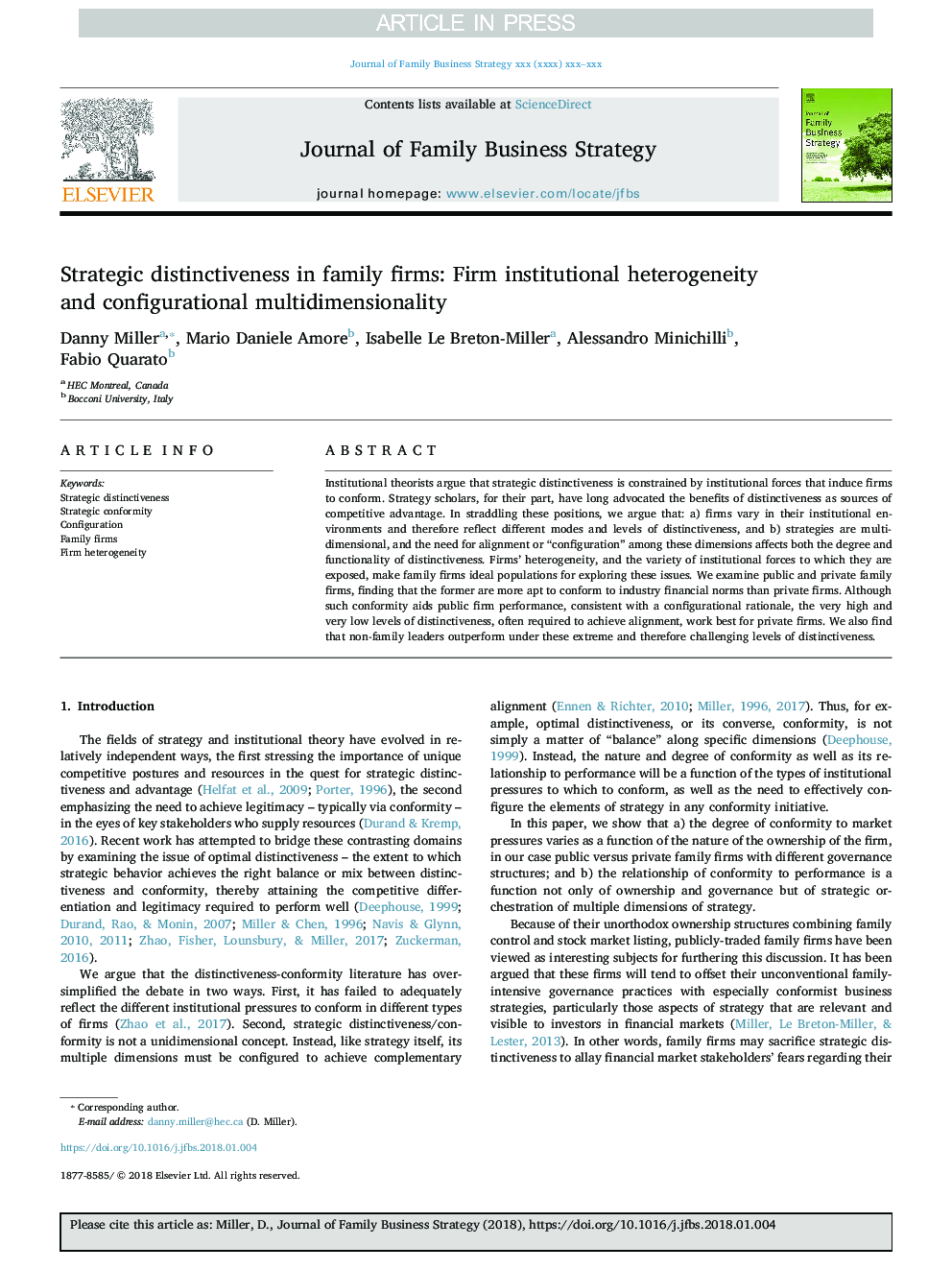| Article ID | Journal | Published Year | Pages | File Type |
|---|---|---|---|---|
| 7426262 | Journal of Family Business Strategy | 2018 | 11 Pages |
Abstract
Institutional theorists argue that strategic distinctiveness is constrained by institutional forces that induce firms to conform. Strategy scholars, for their part, have long advocated the benefits of distinctiveness as sources of competitive advantage. In straddling these positions, we argue that: a) firms vary in their institutional environments and therefore reflect different modes and levels of distinctiveness, and b) strategies are multidimensional, and the need for alignment or “configuration” among these dimensions affects both the degree and functionality of distinctiveness. Firms' heterogeneity, and the variety of institutional forces to which they are exposed, make family firms ideal populations for exploring these issues. We examine public and private family firms, finding that the former are more apt to conform to industry financial norms than private firms. Although such conformity aids public firm performance, consistent with a configurational rationale, the very high and very low levels of distinctiveness, often required to achieve alignment, work best for private firms. We also find that non-family leaders outperform under these extreme and therefore challenging levels of distinctiveness.
Related Topics
Social Sciences and Humanities
Business, Management and Accounting
Business and International Management
Authors
Danny Miller, Mario Daniele Amore, Isabelle Le Breton-Miller, Alessandro Minichilli, Fabio Quarato,
